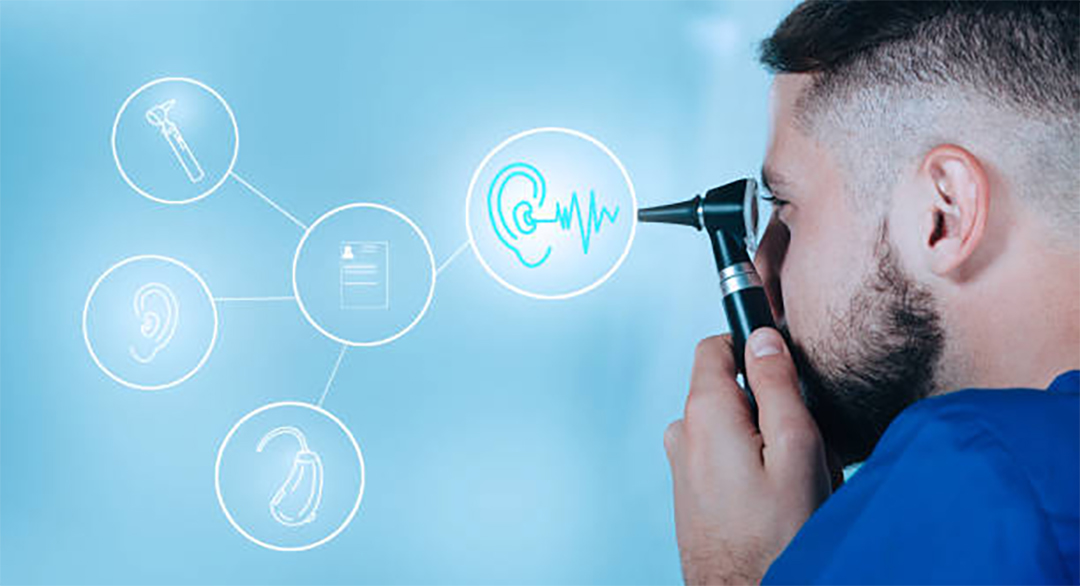
Hearing is an integral part of human existence, connecting individuals to the world through a rich tapestry of sounds. It plays a fundamental role in communication, emotional well-being, and our ability to interact with the environment. However, for millions of people around the world with severe hearing loss, this connection is compromised.
In this article, we will explore the impact of severe hearing loss on an individual’s health and happiness, and how hearing aids can be a transformative solution, unlocking soundscapes that enhance both physical and emotional well-being.
The Prevalence of Severe Hearing Loss
Severe hearing loss is a significant global health issue, affecting people of all ages. According to the World Health Organization (WHO), approximately 466 million people worldwide have disabling hearing loss, and this number is expected to grow to 900 million by 2050. While hearing loss is more common in older adults, it can also affect children and younger individuals due to various factors such as genetic predisposition, noise exposure, infections, and trauma.
The Impact on Physical Health
Severe hearing loss is not limited to difficulties in hearing; it has far-reaching implications for an individual’s overall health:
- Cognitive Decline: Numerous studies have linked untreated hearing loss with cognitive decline and an increased risk of conditions like dementia. The brain works harder to process sounds when hearing is impaired, diverting cognitive resources from other functions.
- Social Isolation: Hearing loss can lead to social isolation and withdrawal from social activities. This isolation has been associated with increased levels of stress, depression, and anxiety, which can negatively impact overall health.
- Safety Concerns: Individuals with hearing loss may face safety concerns as they may not hear important cues such as alarms, approaching vehicles, or verbal warnings.
- Communication Difficulties: People with hearing loss may struggle to communicate effectively, leading to misunderstandings, frustration, and potentially strained relationships.
The Impact on Emotional Well-being
Hearing loss doesn’t only affect physical health but also profoundly influences emotional well-being:
- Emotional Distress: Coping with hearing loss can be emotionally distressing. It often entails feelings of frustration, anger, and sadness, stemming from difficulties in communication and the sense of missing out on important life moments.
- Low Self-esteem: Hearing loss can erode an individual’s self-esteem and self-worth. The stigma associated with wearing hearing aids can further exacerbate feelings of self-consciousness.
- Loss of Enjoyment: Many individuals with severe hearing loss may lose enjoyment in activities they once loved, such as music, social gatherings, or even simple conversations.
Hearing Aids as Transformative Solutions
Hearing aids are advanced technological devices designed to improve hearing and enhance an individual’s quality of life. For those with severe hearing loss, hearing aids can be transformative in several ways:
- Improved Communication: Hearing aids enhance the ability to hear and understand speech, facilitating better communication with family, friends, and colleagues. This, in turn, fosters more positive relationships and reduces feelings of isolation.
- Enhanced Cognitive Function: Treating hearing loss with hearing aids has been associated with improved cognitive function. By providing the brain with the auditory input it needs, individuals can better maintain their cognitive abilities.
- Safety and Awareness: Hearing aids help individuals stay alert to their surroundings, improving safety. They can hear alarms, sirens, and other important auditory cues more effectively.
- Increased Confidence: While there may be initial concerns about the appearance of hearing aids, many modern designs are discreet and cosmetically appealing. As individuals experience the benefits of improved hearing, their self-confidence often increases.
Reconnection to Enjoyment: With hearing aids, individuals can rediscover the joy of music, the sounds of nature, and the conversations they may have missed.
Overcoming the Stigma
One of the challenges associated with hearing aids is the stigma that may deter individuals from seeking help.
However, it is essential to understand that hearing aids have evolved significantly over the years. Modern hearing aids are smaller, more discreet, and technologically advanced. Many are virtually invisible when worn, making them less conspicuous and more acceptable.
Additionally, society’s perception of hearing aids is changing. More public figures and celebrities have openly discussed their experiences with hearing loss and the benefits of hearing aids, contributing to reduced stigma and increased acceptance.
Seeking Professional Help
If you or someone you know is living with severe hearing loss, it’s essential to seek professional help. Audiologists and hearing specialists can assess the level of hearing loss and recommend suitable as well as best hearing aids. The process typically involves a comprehensive hearing evaluation and a discussion of lifestyle and communication needs.
Choosing the right hearing aids and adjusting them to individual preferences can significantly impact one’s quality of life. Regular follow-up appointments with hearing healthcare professionals are crucial to ensure that the devices are properly calibrated and providing the maximum benefit.
The Path to Health and Happiness
Severe hearing loss can have a profound impact on an individual’s physical health and emotional well-being. However, hearing aids offer a transformative solution, helping to restore the connection to the world of sound.
By seeking professional help, individuals can regain their ability to communicate, improve cognitive function, and enjoy life more fully. It’s important to overcome the stigma associated with hearing aids and embrace them as valuable tools for enhancing overall health and happiness.
Conclusion
Severe hearing loss is a global health challenge that affects millions of individuals, often compromising their physical and emotional well-being. The impact of hearing loss on cognitive function, social isolation, and emotional distress is significant. However, hearing aids represent a transformative solution that can enhance an individual’s quality of life by improving communication, safety, and self-esteem.
Overcoming the stigma associated with hearing aids is essential, as modern devices are discreet and technologically advanced. Seeking professional help and choosing the right hearing aids can set individuals on a path to better health and increased happiness.

